Commercial roofs, or low-sloped roofs, cover a wide range of roofing products for all types of businesses. There are several different types of commercial roofing and industrial roofing products available to fit a wide variety of needs.
Our team is fully licensed, bonded, and insured and capable of installing and servicing a roofing system that will serve you for many years to come. Contact us today for a free estimate.
5 Types of Commercial Roofing
When we meet with future clients, they are usually comparing several types of roofing systems. We are always asked: What are the most popular types of commercial roofing? Which is better? Which is more reasonably priced? In this article, we will cover 5 types of commercial roofing.
At RCM, we have been helping customers for decades choose the right roof for their building and their budget. We want everyone to feel empowered when they start getting quotes from their contractors.
In this article, we break down the five most common types of commercial roofing along with their average costs* and advantages.
Examples of our commercial roofing services include:
- TPO Roofing
- EPDM Roofing
- PVC Roofing
- Modified Bitumen Roofing
- Built Up (Tar & Gravel) Roofing
- Metal Roofing
- Roof Coatings
- Roof Maintenance
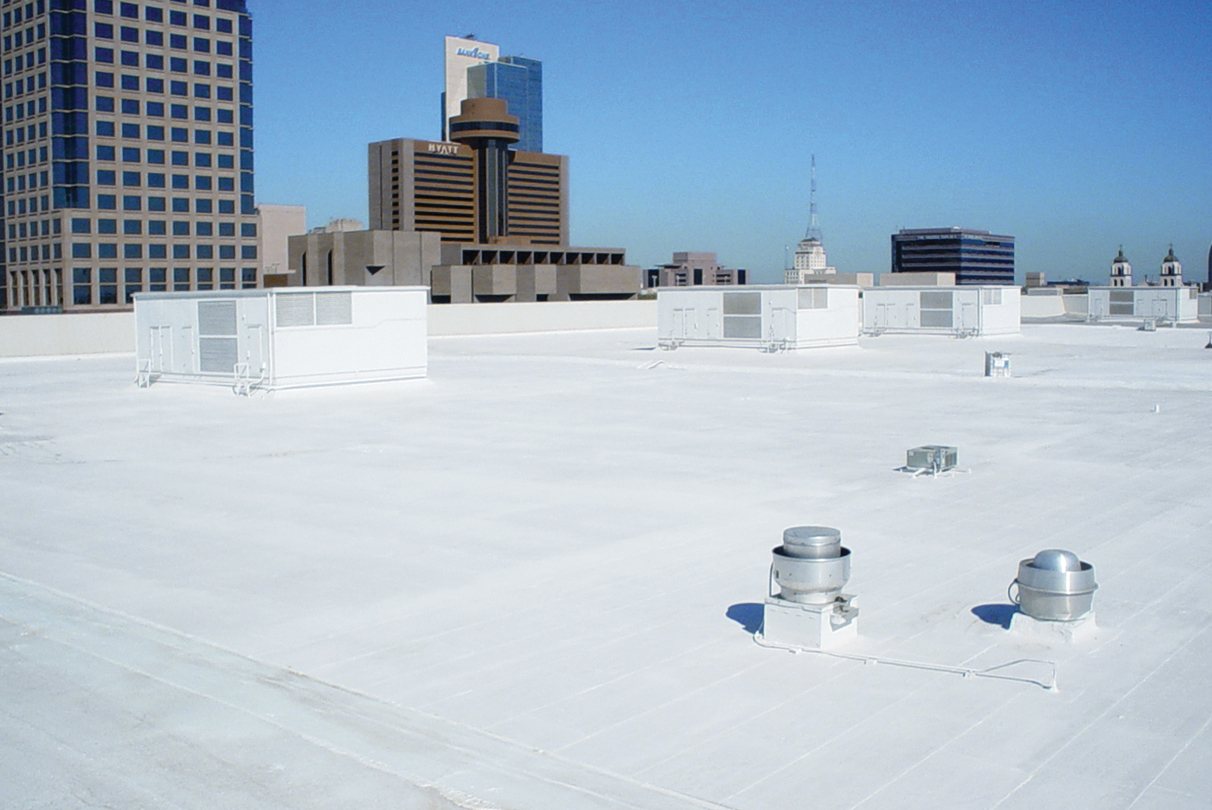
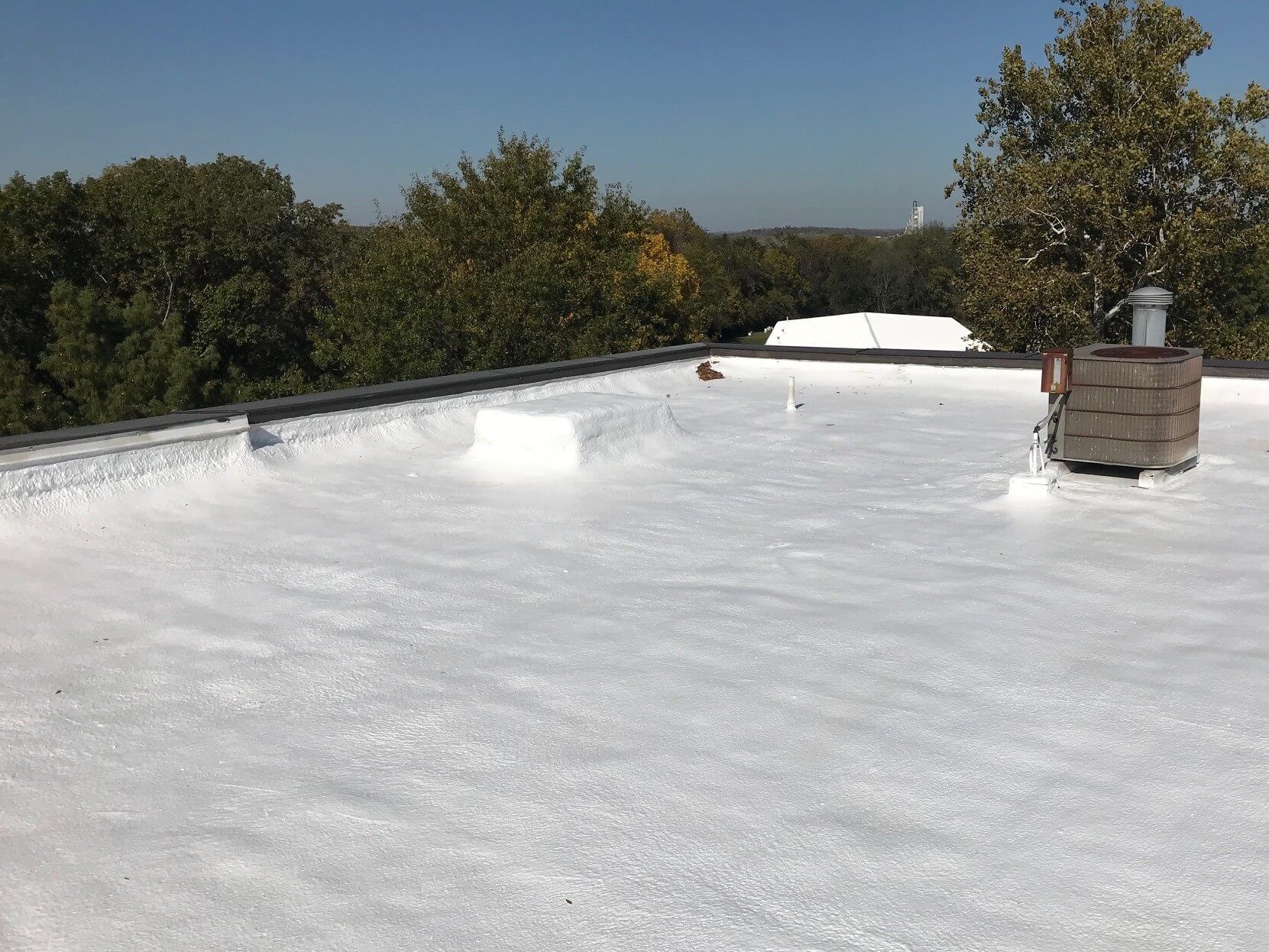
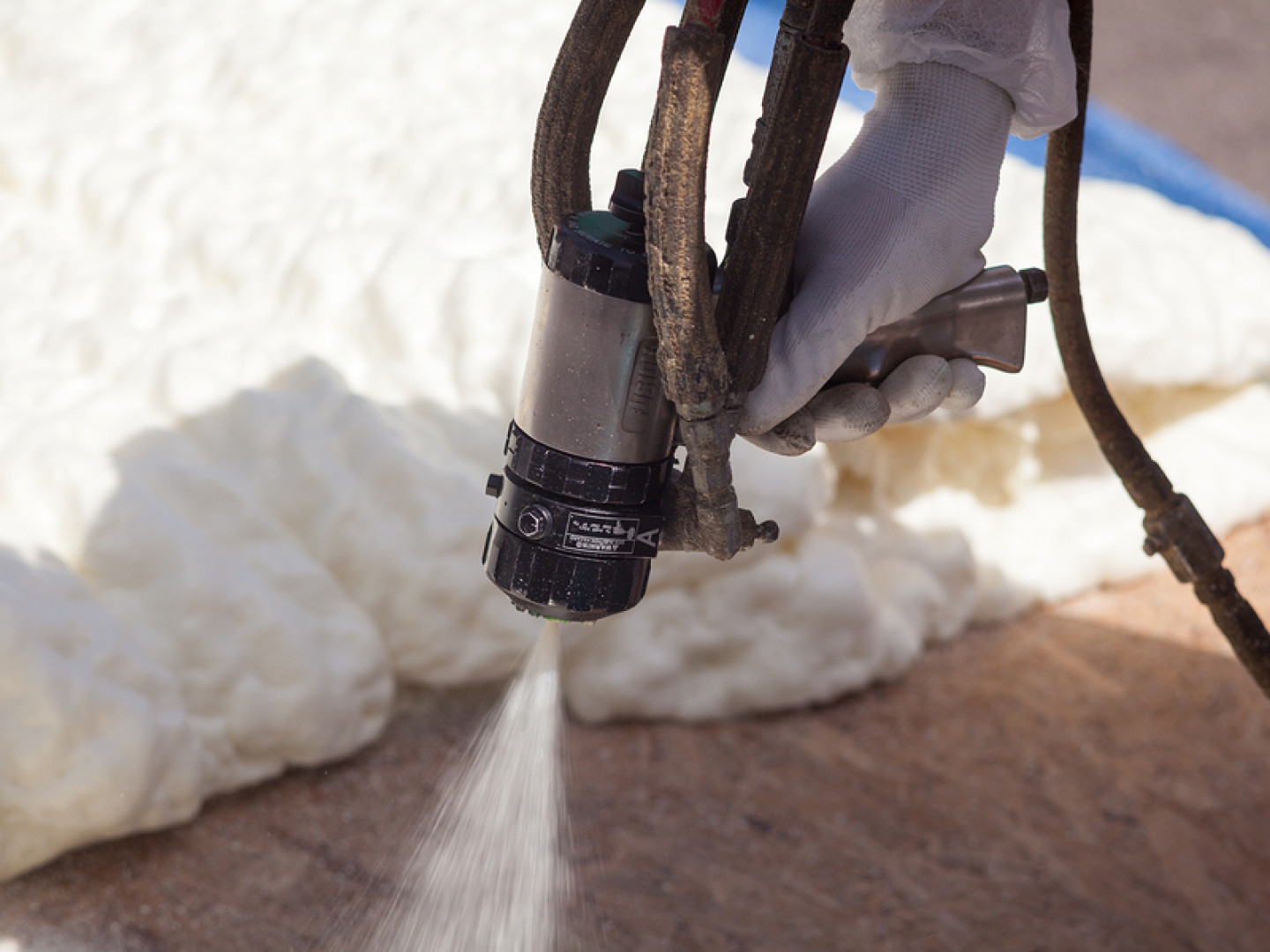
Spray Polyurethane Foam Roofing
Spray Polyurethane Foam (SPF) is an eco-friendly roofing option for commercial, industrial and manufacturing facilities. Spray Polyurethane Foam, more commonly referred to as SPF, is a material that is sprayed as a liquid so it can expand into a foam, creating a solid layer across an existing roof.
While SPF roofing is not the most known type of roofing material, the technology has been around since the early 1960s for industrial, commercial, and residential facilities. An SPF roofing system can be used in any climate, and when correctly installed and maintained, can last over 50 years.
For an average 20,000 sq. foot commercial roof, it will usually cost between $4.00 and $7.00 per square foot* in materials and labor to install a typical SPF roofing system. This price range is for an SPF roof of average thickness and building structure.
Spray Polyurethane Roofing Advantages
There are quite a few benefits of SPF roofing systems:
- Energy Efficient – SPF delivers thermal, air, and moisture barriers to provide the highest R-value per inch.
- Durable – The foam material can expand and contract with the building, decreasing the likelihood of cracks and splitting.
- Seamless and Waterproof – The continuous solid surface does not require joints or seams, removing the most vulnerable area for leaking.
- Environmentally Friendly – In most cases, there is minimal stripping of the original roof – eliminating the need for costly roof tear-offs and waste. The materials that are used for SPF roofing systems are also environmentally friendly: Zero Ozone Depleting Potential (ODP), Low in the Emission of Volatile Organic Compounds (VOCs), Free from Chlorofluorocarbons (CFCs), Ultra-Low Global Warming Potential (GWP).
Single-Ply Membrane Roofing
Single-Ply Membrane is a time-tested roofing option for commercial, industrial and manufacturing facilities. Single-Ply Membranes are sheets of rubber and other synthetics that can be ballasted, mechanically fastened or chemically adhered to insulation creating a layer of protection on your commercial facility.
While Single-Ply Membrane Roofing is one of the most well-known types of commercial roofing material, there are several types to fit your budget and facility needs.
For an average 20,000 sq. foot commercial roof, it will usually cost between $3.50 to $7.50 per square foot for EPDM and $3.50 to $6.50 per square foot for TPO*, including materials and labor warranty.
Single-Ply Membrane Advantages
If properly installed and maintained, a commercial single-ply membrane roof can last 30 years. There are quite a few other benefits of single-ply membrane roofing systems:
- Proven Track Record – EPDM roofing has been used for commercial flat roofing for over years. This amount of time on the market has allowed various laboratory and field studies to be performed and tracked.
- Customer Choice of Insulation – Since single-ply membrane roofing does not include the insulation factor, as a customer you have more options to choose from to insulate your facility’s roof.
- Class A Fire-Rated – TPO membranes and EPDM can achieve Underwriters Laboratories (UL) Class A fire resistance listings by adding fire retardant chemicals during the manufacturing process.
- Reflective or Retentive – TPO is generally white and highly reflective. On the other side of the spectrum, EPDM is often described as “Black Roofs,” due to the natural dark color of the membrane.
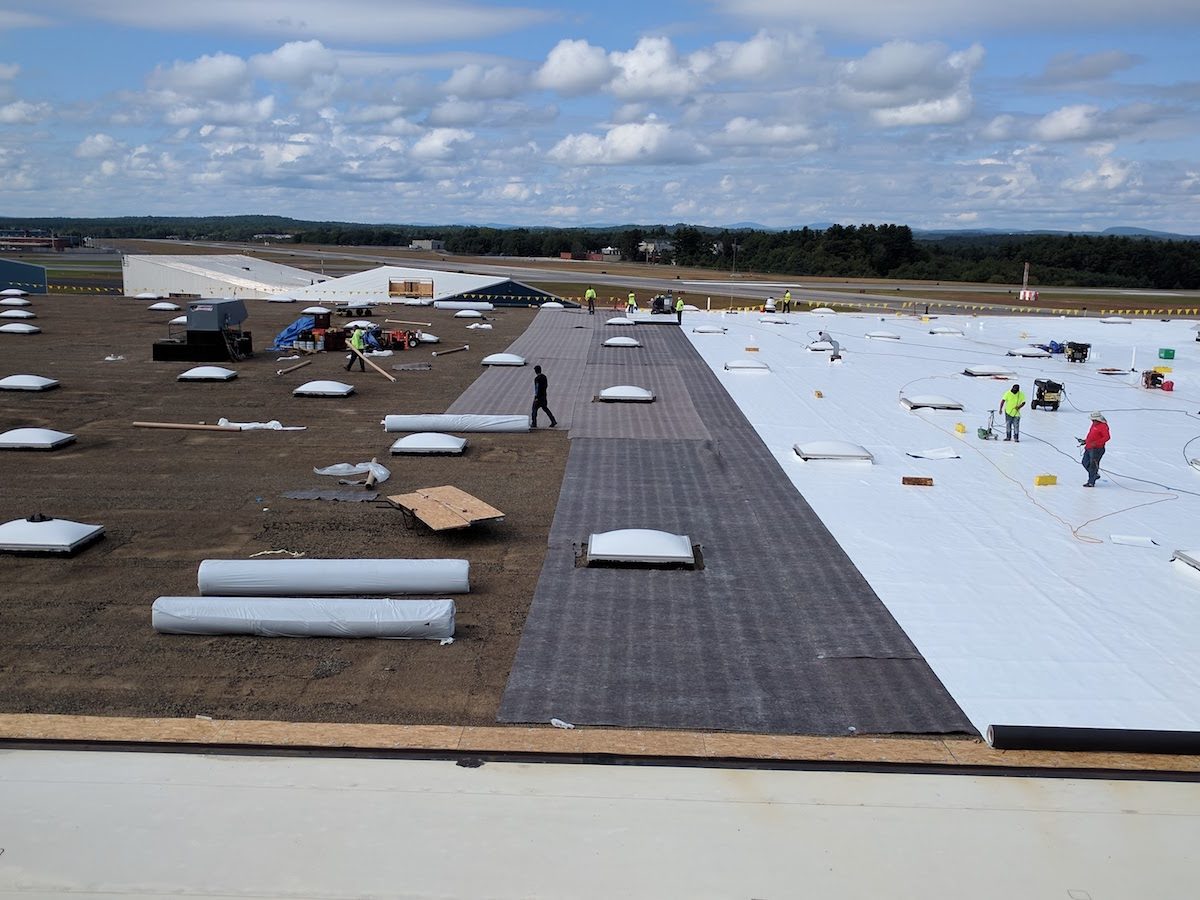
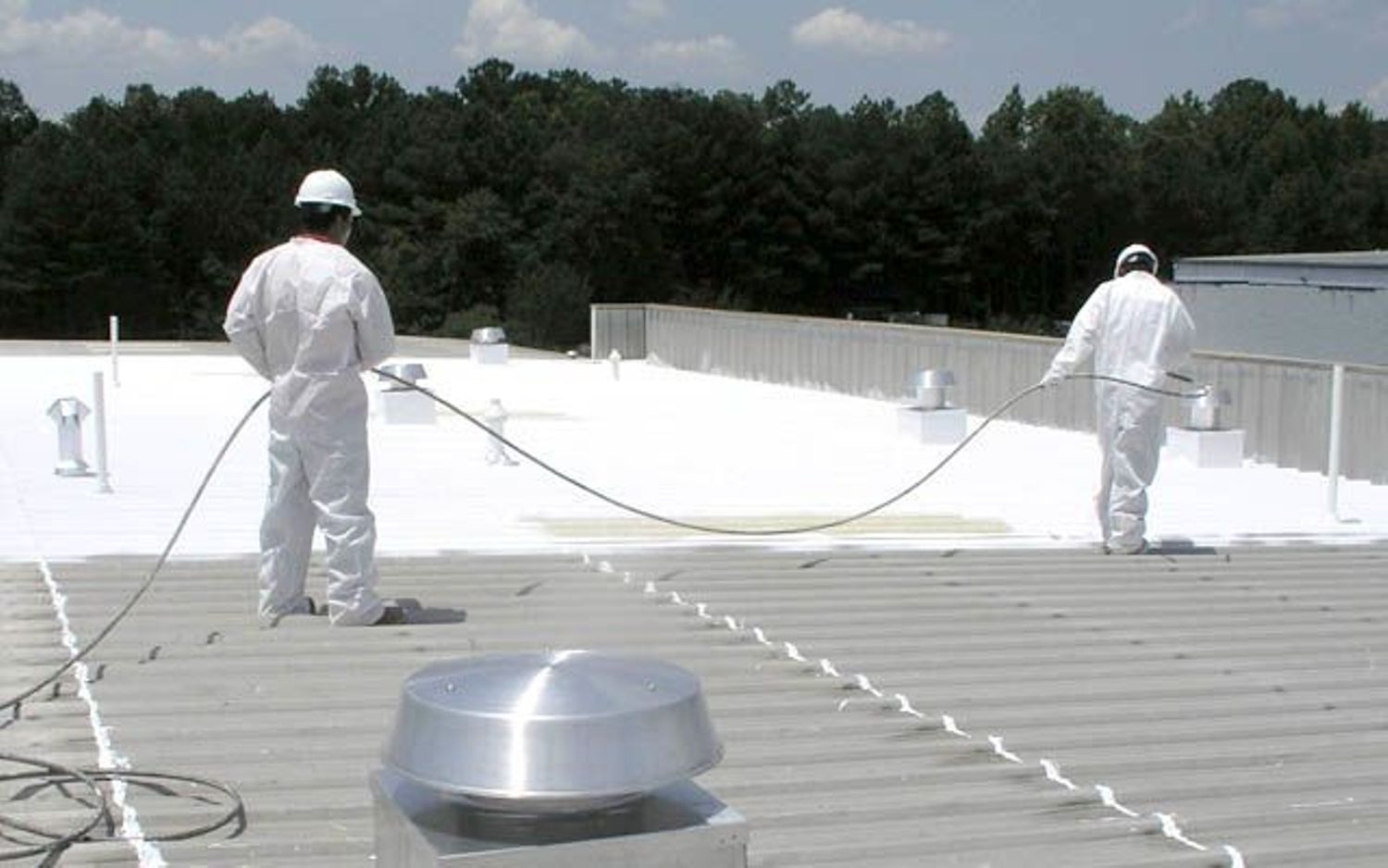
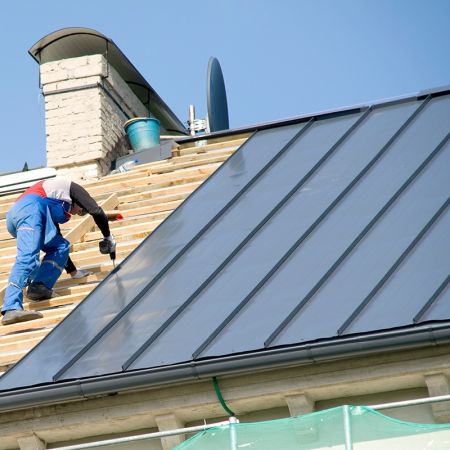
Metal Roofing
Metal Roofing is one of the oldest commercial roofing systems on the market. Most metal roofing systems use corrugated galvanized steel, although other materials such as aluminum or tin can also be used.
Since metal roofing material is rather light in weight, it can be installed right on top of the existing roof. After a metal roofing system is installed, a coating can be added for waterproofing, rust protection, and UV protection.
For an average commercial roof, it will usually cost between $5.00 and $10.00 per square foot* in materials and labor to install a typical metal roofing system. This price range can change depending on the type and style of the metal panels you choose.
Metal Roofing Advantages
If properly installed and maintained, a commercial metal roof can last 40 years. There are quite a few other benefits of metal roofing systems:
Design – Variety of material and color choices.
Stability – Ability to hold up to high winds and snow.
Energy Efficient – Sheet metal can be made from recycled material.
Fire Resistance – Metal panels are less prone to fire damage and do not promulgate fire events.
Shingle Roofing
Shingle roofing is mostly known for homes and residential roofing, but shingles are very often used for steep slope commercial roofing applications. Shingles can be made out of a few different materials, including wood, slate, metal, plastic, ceramic and composite material such as asphalt. There are two main types of shingles: Asphalt and Architectural.
Asphalt Shingles: most common, cost-effective shingle on the market used for applications. These roof systems often come with 15 – 30-year warranties on average.
Architectural Shingles: multi-layered and heavier to add durability and weatherproofing to the building. Often comes with “lifetime” warranties.
For an average commercial roof, it will usually cost between $2.50 and $5.00 per square foot* in materials and labor to install a typical shingle roofing system. This price range can change depending on the type and style of the shingles you choose.
Shingle Roofing Advantages
Some benefits of commercial shingle roofing include:
Design – Wide variety of colors and designs
Durable – Some types of shingles are class IV hail rated
Easy Repair – Easy to spot and repair small areas of damage
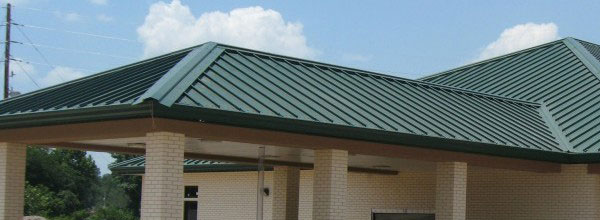
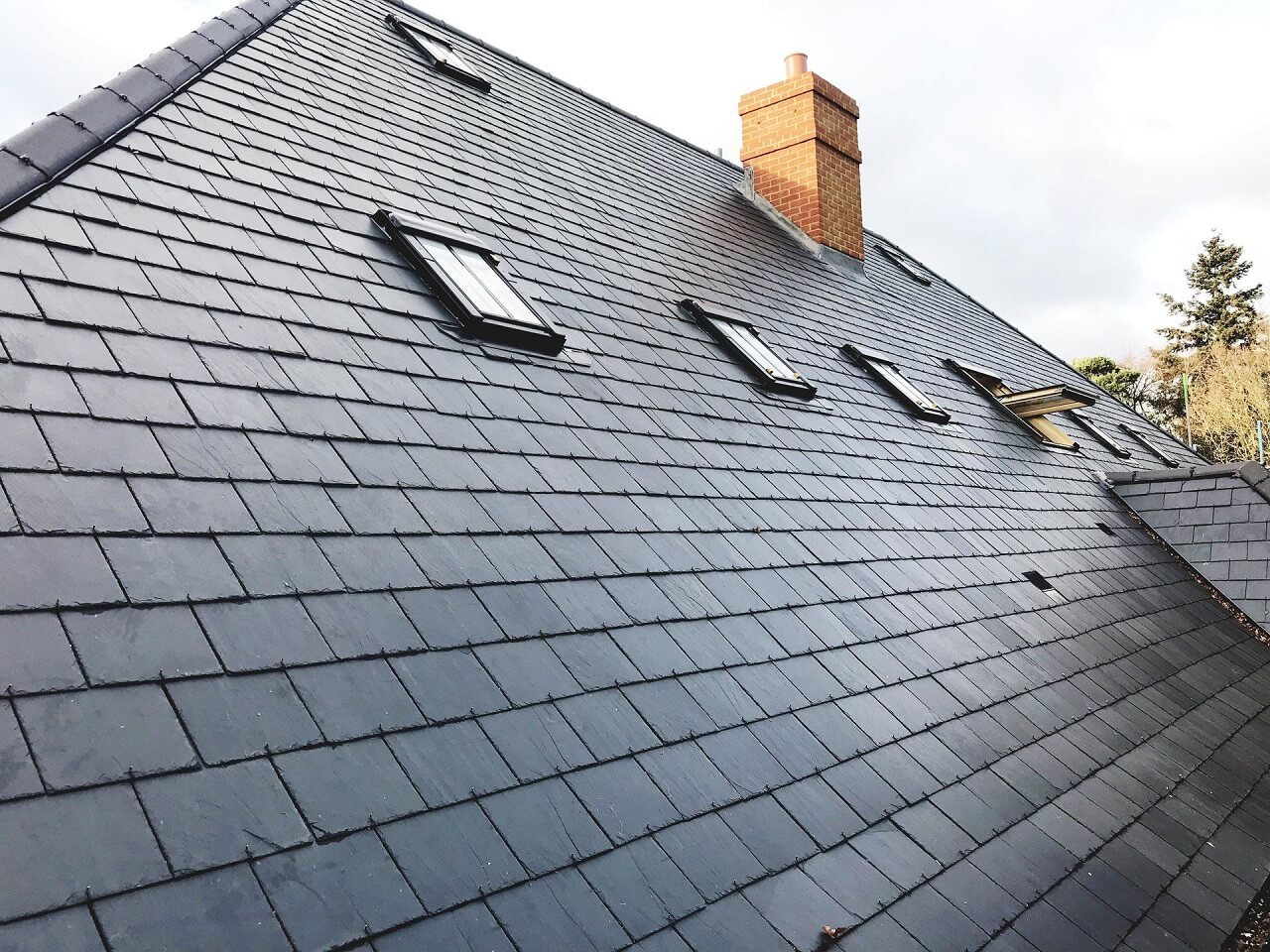
Built-Up Roofing
Built-Up Roofing Systems have been in use in the U.S. for over 100 years. These roof systems are commonly referred to as “tar and gravel” roofs. Built-up systems are installed by alternating layers of asphalt or tar and supporting fabrics directly onto the roof. You can choose the number of layers (or plies) that are installed. The final layer of a built-up roofing system consists of stone or gravel.
For an average commercial roof, it will usually cost between per $5.50 – $8.50 square foot* in materials and labor to install a typical built-up roofing system. This price range can change depending on the materials you choose.
Built-Up Roofing Advantages
If properly installed and maintained, a commercial built-up roof can last 40 years. There are a few other benefits of built-up roofing systems:
Seamless and Waterproof – The continuous solid surface does not require joints or seams, removing the most vulnerable area for leaking.
UV Rays – provides ultra-violet protection.
Low- maintenance – Minimal upkeep needed after installation.
As you can see, there are a lot of choices when looking into a new commercial roof. Each of the 5 types of commercial roofing has their benefits and drawbacks, choosing which one is best comes down to a customer-by-customer basis.
RCM installs sustainable and efficient roofing systems for commercial, industrial, manufacturing and municipal buildings. In over 37 years, we have installed over 57,000,000 square feet of commercial roofing, and our expert team is ready to help you.

